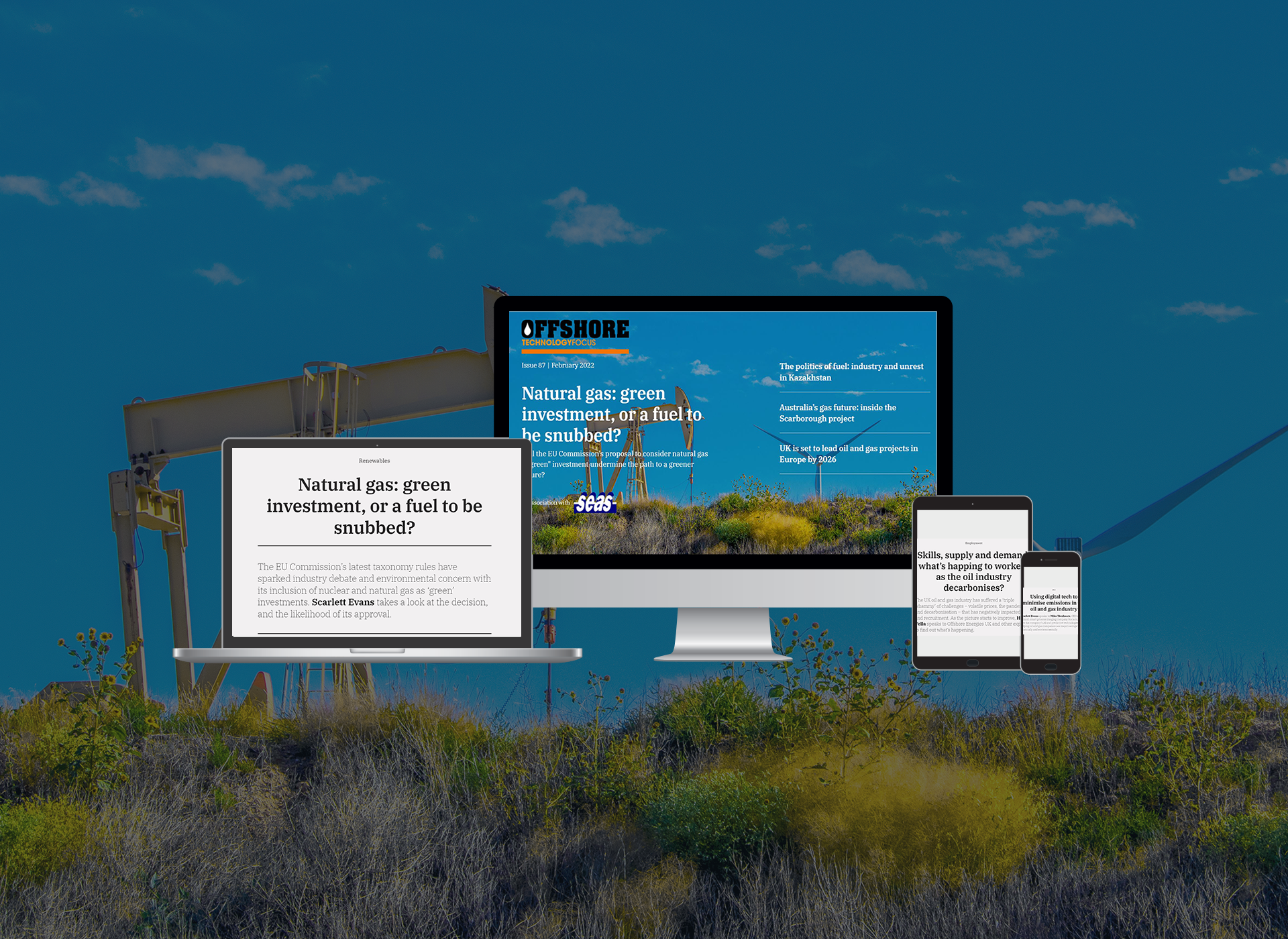
Offshore Technology Focus has a bold new look, and a brand new platform, but still features the same in-depth articles and prescient news pieces to keep you updated with the latest happenings in the oil and gas industry.
This issue, we ask if oil and gas can be reasonably considered a “green” fuel. While the answer may appear to be an obvious no, considering the environmental credentials of renewable sources, oil and gas remains much more environmentally viable than other fossil fuels. With a new EU taxonomy system offering benefits for renewable power in particular, we ask if oil and gas could, or even should, be considered for these perks.
Elsewhere, we travel around the world, from Australia to Kazakhstan to Egypt, and investigate all corners of the sector. What could local trends in hiring, popular opinion and exploration help teach us about the global oil and gas industry?
Whether you are on a desktop, tablet or smartphone, you can read the magazine for free online, and join the conversation on Twitter.
In this issue
Natural gas: green investment, or a fuel to be snubbed?
The EU Commission’s latest taxonomy rules have sparked industry debate and environmental concern with its inclusion of nuclear and natural gas as ‘green’ investments. Scarlett Evans takes a look at the decision, and the likelihood of its approval.
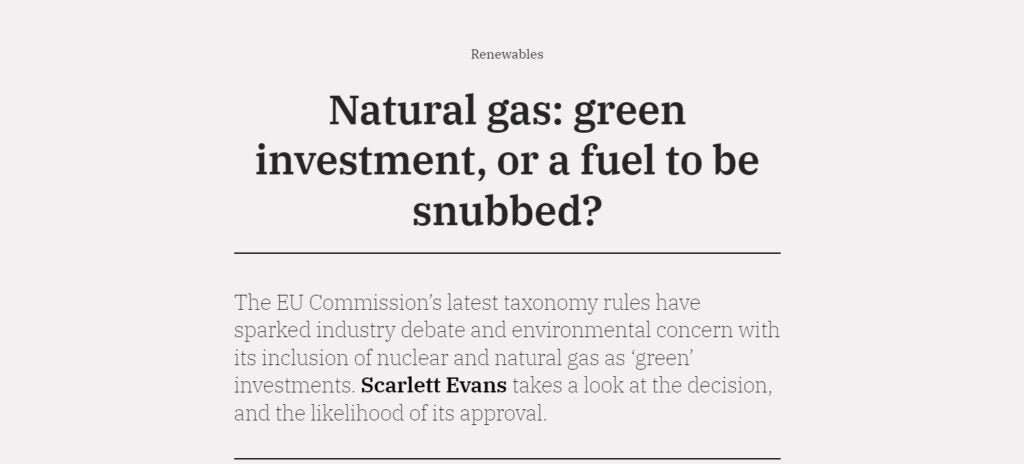
Skills, supply and demand: what’s happing to workers as the oil industry decarbonises?
The UK oil and gas industry has suffered a ‘triple whammy’ of challenges – volatile prices, the pandemic and decarbonisation – that has negatively impacted skills and recruitment. As the picture starts to improve, Heidi Vella speaks to Offshore Energies UK and other experts to find out what’s happening.
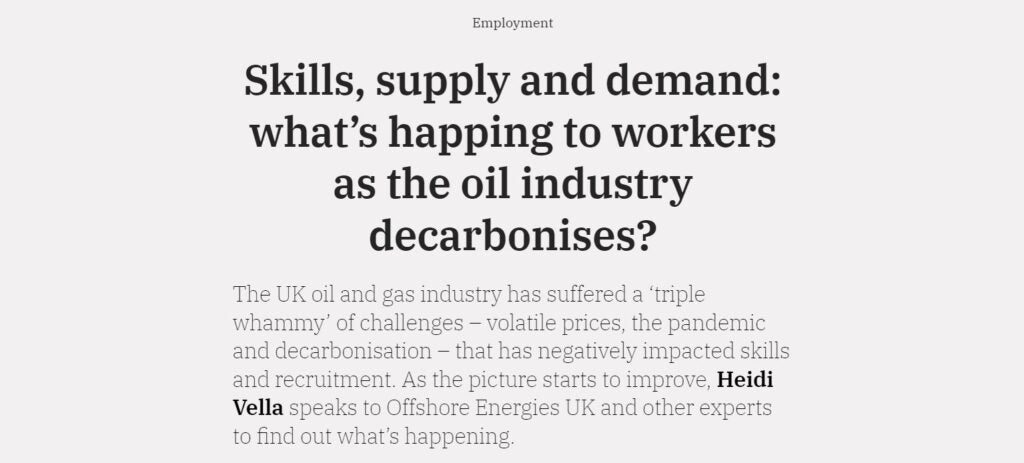
The politics of fuel: industry and unrest in Kazakhstan
Straddling the Chinese and Russian energy markets and boasting some of the largest oil reserves in the world, Kazakhstan is a key player in the global fossil fuel industry. Scarlett Evans investigates a spate of protests that rocked the nation in January, highlighting the impact of geopolitical tensions on energy supply chains.
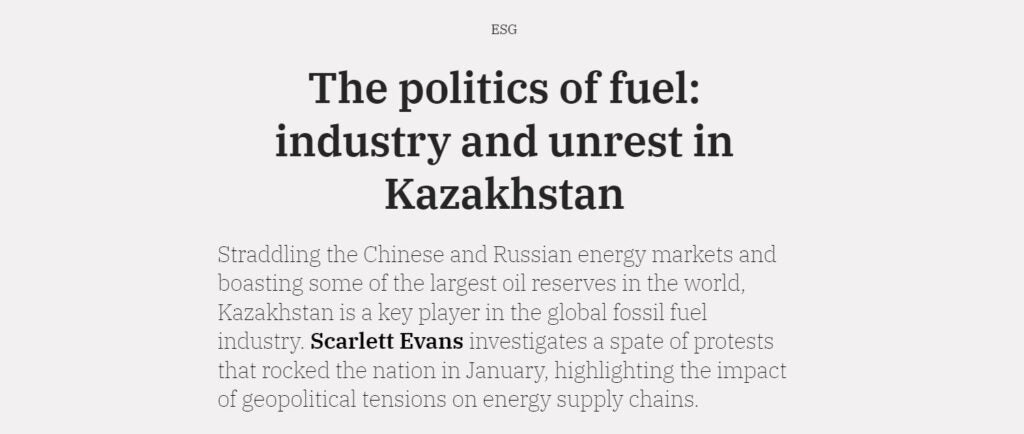
Egyptian exploration: can a desert be green?
As the Egyptian economy continues to grow at speed, so too does the country’s appeal to foreign investors in oil and gas. Ordinarily this would be a good thing, and arguably is in the most part. But as Andrew Tunnicliffe reports, it is presenting the country’s leadership with a challenge that could fast become a real bone of contention with the international community.
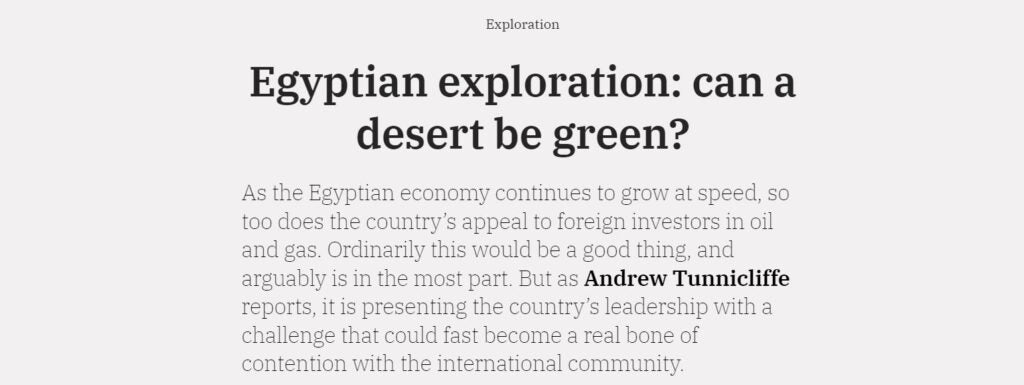
Australia’s gas future: inside the Scarborough project
Australia’s Scarborough gas project is the country’s largest fossil fuel development in a decade, but its opening is still being disputed in court over environmental concerns. Scarlett Evans asks: are times changing in Australia, or does gas remain an inevitable part of the nation’s future?
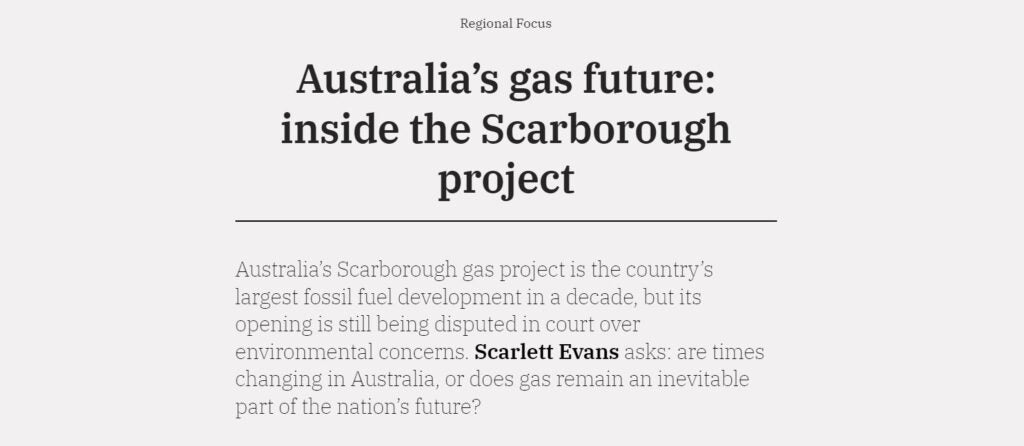
Using digital tech to minimise emissions in the oil and gas industry
Scarlett Evans speaks to Mika Tienhaara, CEO of Finnish smart process imaging company Rocsole, about how his company’s AI and predictive technologies are helping oil and gas companies see major savings both financially and environmentally.
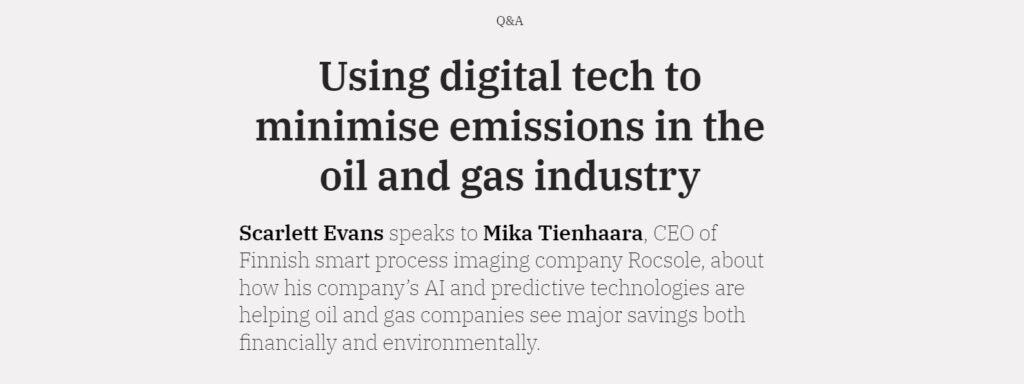
Next issue: automation and robotics
Automation is already a well-established part of many industrial processes, and oil and gas is no different. With drones alone allowing for improved monitoring, exploration and safety, the industry is embracing similar technologies as it looks to modernise and remain profitable in an ever-changing sector. Yet what of the human cost of these changes? Will the rise of automation lead to a decline in employment? And how can human workers adapt, and companies support these changes, to an industry with an uncertain future.



